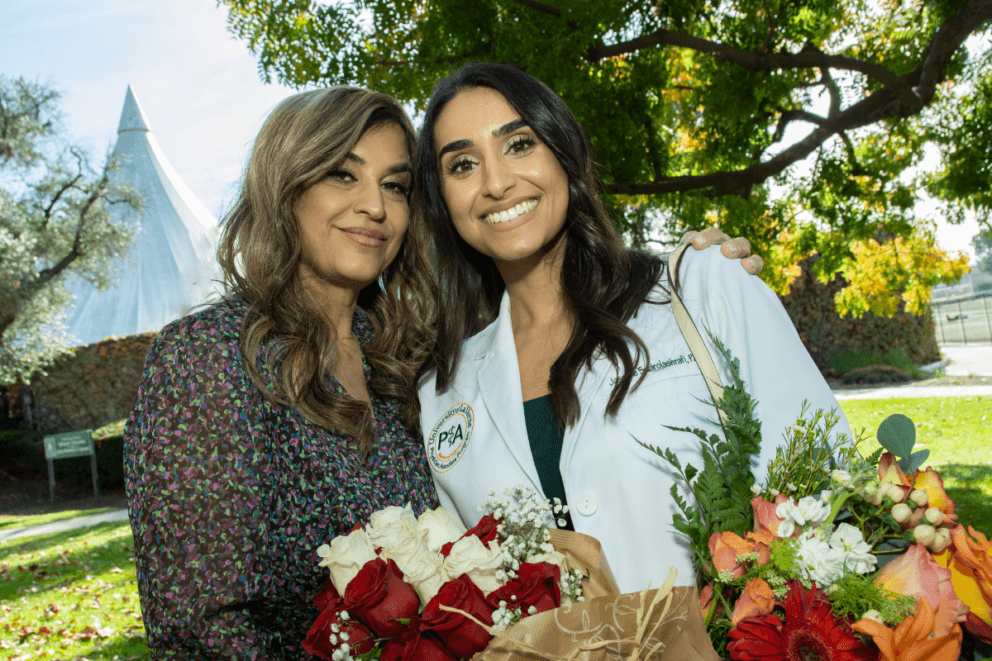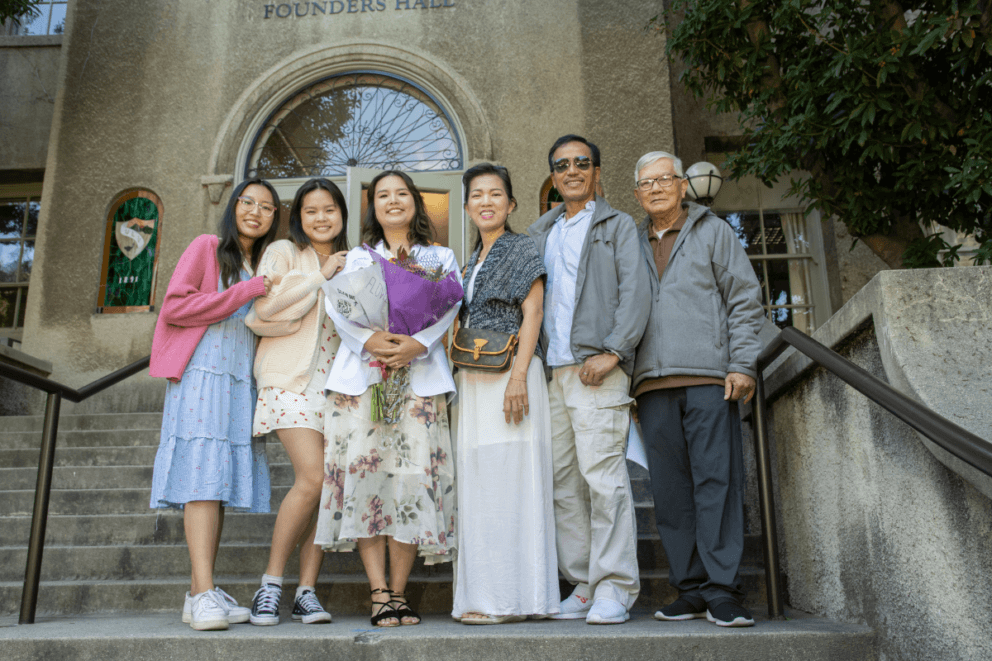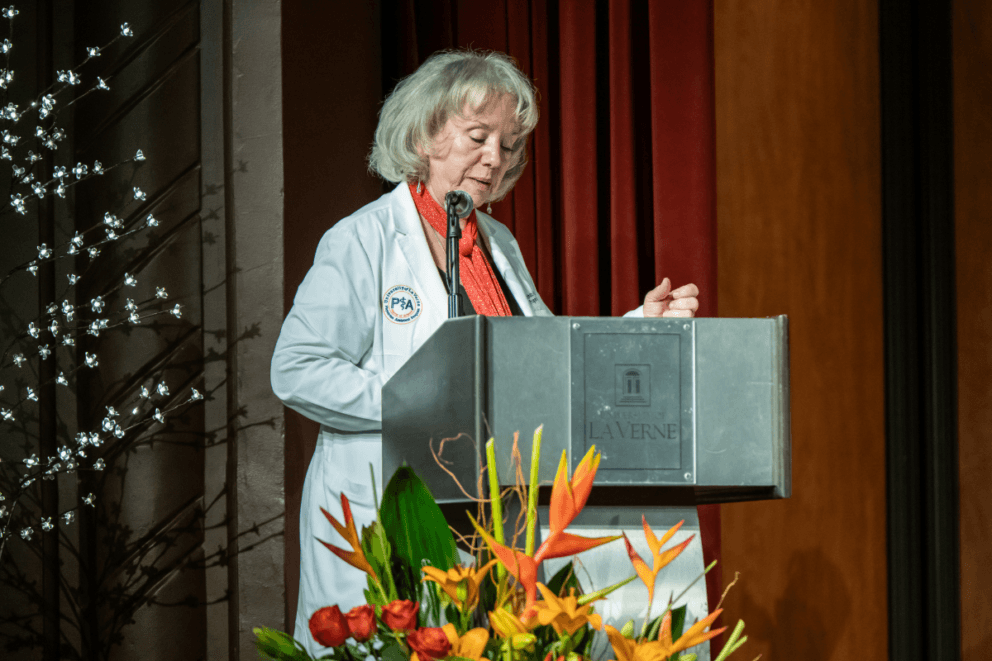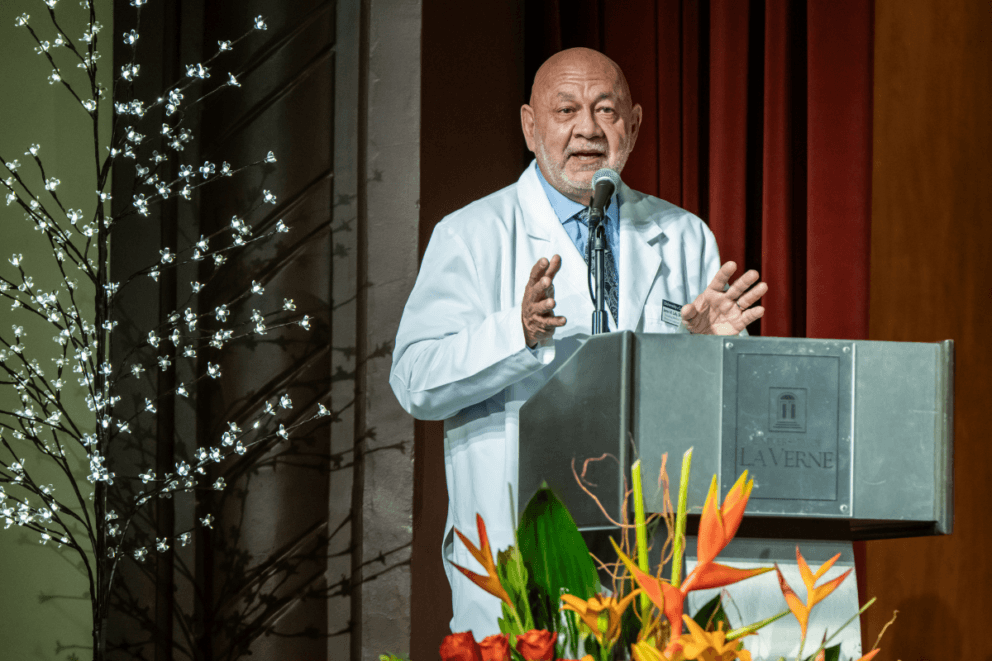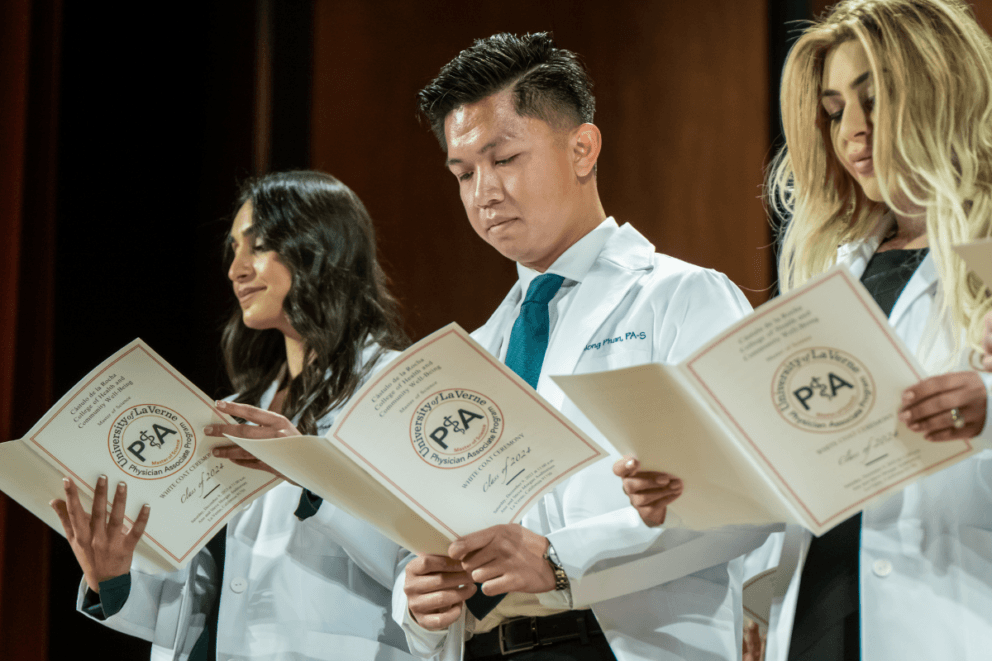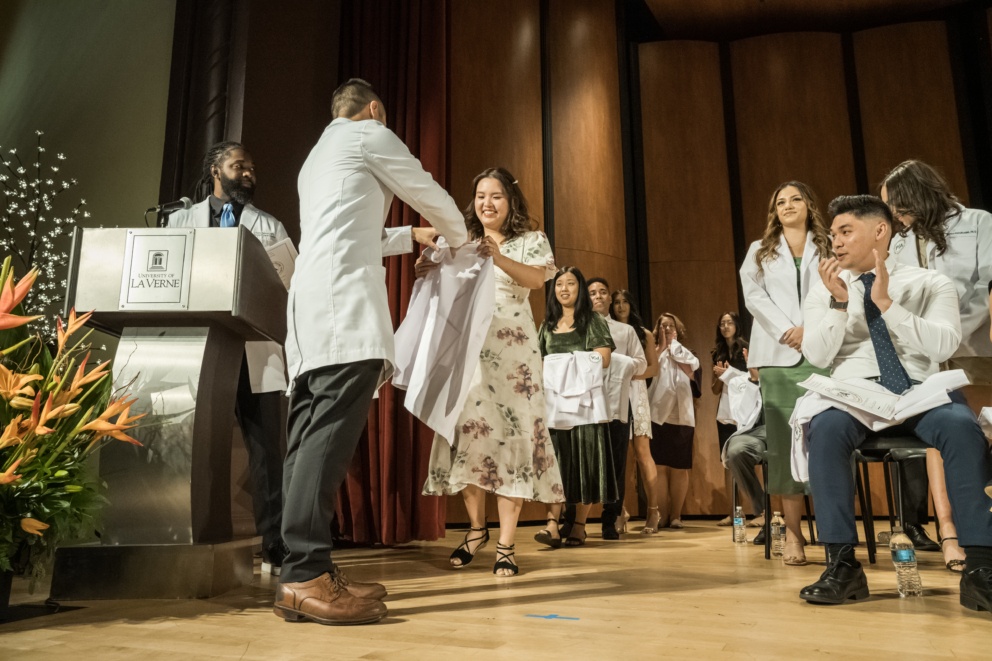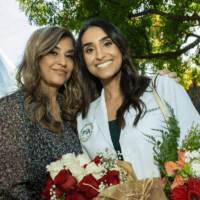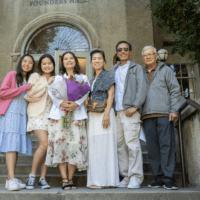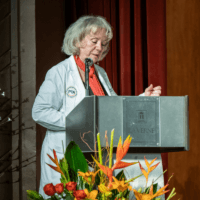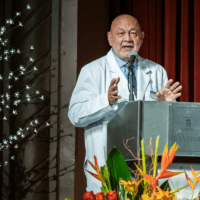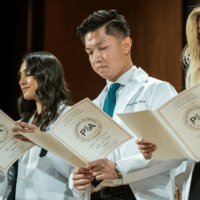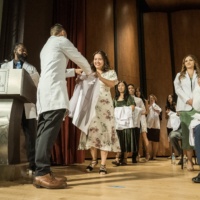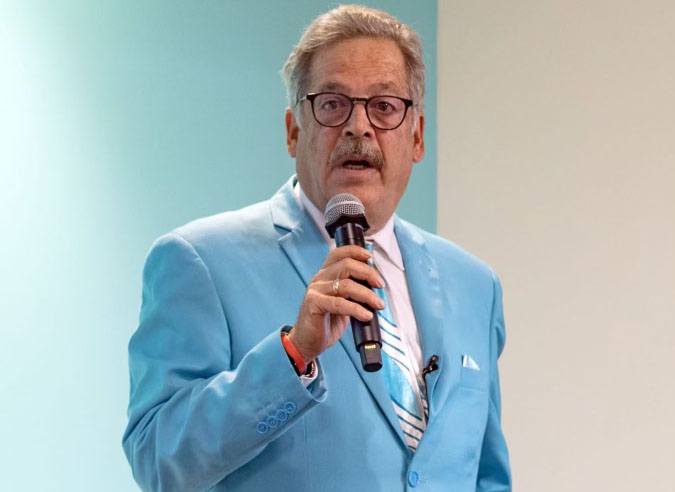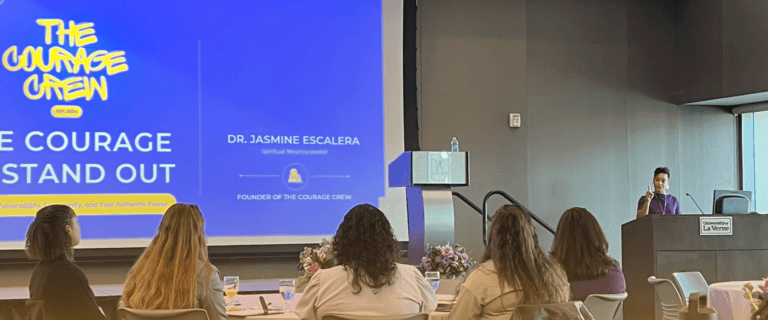Physician Assistant Program’s Fourth Cohort Celebrated
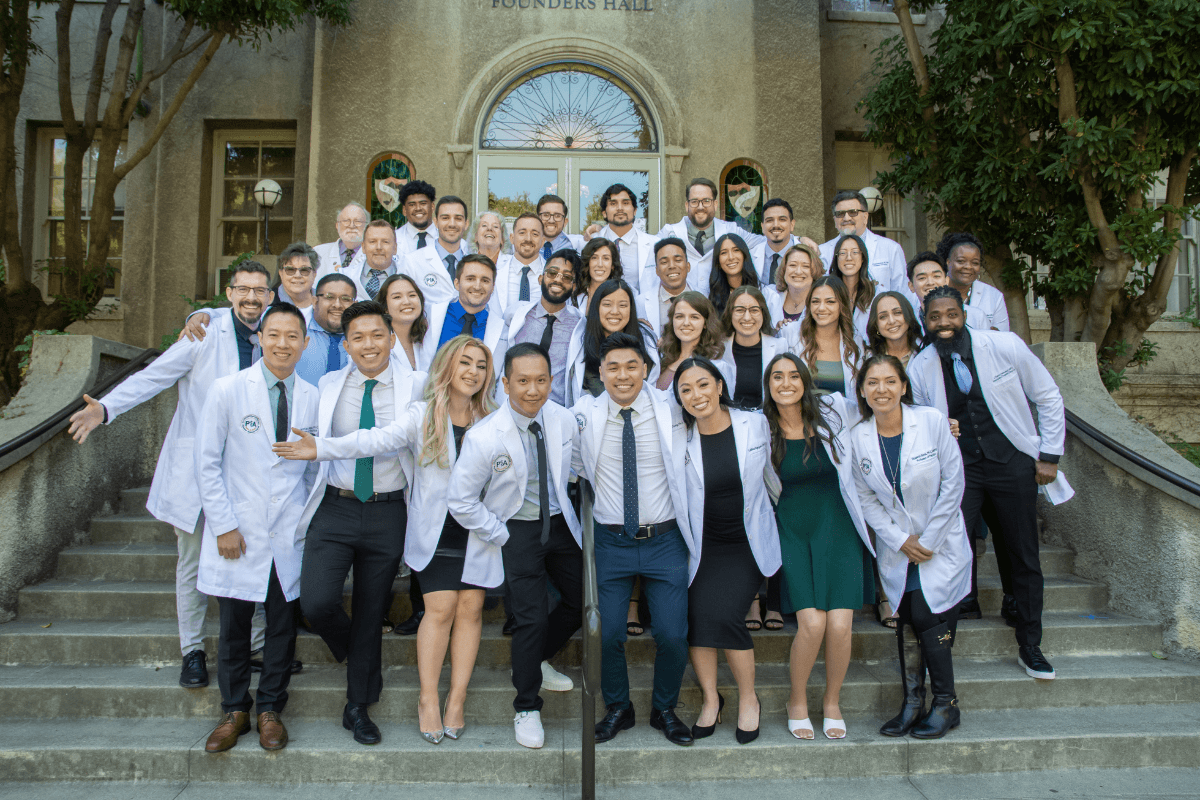
This month, the University of La Verne held a White Coat ceremony in the Ann and Steve Morgan Auditorium on campus to celebrate the transition of the fourth cohort of students enrolled in the Master of Science in Physician Assistant (PA) Practice program from classroom to clinical education.
A group of 26 students successfully completed their 15-month classroom education. They will now move on to clinical rotations for their final year of training. To mark this important milestone, the students received their short white coats during the ceremony, which is a traditional rite of passage in the medical field.
This educational career field is, “comparable to medical school “by firehose”,” Program Director and Department Chair of the Physician Assistant Practice Program Ann Shultz shared about the rigor of the program. After 27 months, the students will graduate and then move on to pass the Physician Assistant National Certifying Exam. Then students are ready to be responsible for the healthcare and lives of their patients, Shultz says.
This group outperformed national standards on their first-year Physician Assistant Clinical Knowledge Rating and Assessment Tool exam by scoring five percent above the national mean score in all areas, with more than 95 percent of all PA programs taking the exam.
During the event, a recorded message was shared from President Pardis Mahdavi. Then, Dean Kathy Duncan spoke to the students, followed by Director of Second Year Clinical Experience Medical Director Dr. James Lally. The class president and vice-president shared the podium and gave a speech to their fellow students as well. The ceremony emphasized the importance of combining compassion with scientific excellence as they advance in their profession. The most significant aspect of the ceremony is when students take their oath, which acknowledges their central obligation to care for patients.
Students will now complete nine clinical rotations in various medical specialties with their new short white coats during their final year leading to graduation in December 2024.
“We could not be prouder of them as a group, or the hard work the program has put into getting them here,” Schultz said.
